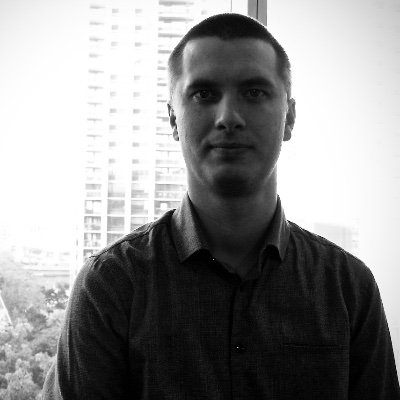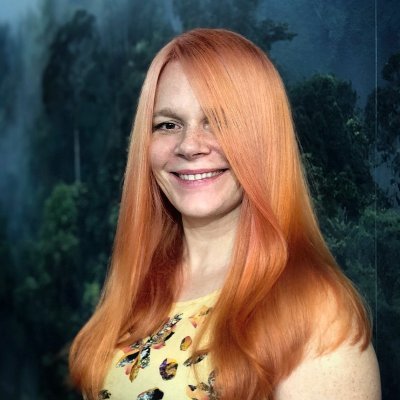
Aoxing Liu
@Aoxing2
Followers
1K
Following
991
Media
28
Statuses
114
postdoc with @dalygene at Broad Institute & MGH. Curious about (large) chromosome alterations & (deep) human pedigrees + immunity, cancer & their interplay :)
Boston, MA
Joined May 2018
New out in Nature!! .With age, women can lose one X chromosome in their leukocytes. What’s the cause/consequence? .How does it differ from the loss of the Y chromosome in men?.@broadinstitute @FinnGen_FI @FIMM_UH @theNCI @Cambridge_Uni.
12
95
329
A public platform featuring 3,168 polygenic score (PGS) models applied to 500,000 FinnGen participants by Mykyta & Nikita!!.
In our new study we evaluated 3,000+ polygenic risk scores in nearly 500,000 @FinnGen participants. See PGS performance metric, multi-PGS models, PGS-PheWAS and personalized predictive models within #PGSBrowser: and the preprint at
0
0
5
Congratulations, Tim and SMaHT!!.
The cells in our bodies constantly acquire mutations. But what are the patterns of mutations across tissues? How do mutations in normal cells lead to disease? These and other questions we will tackle within the SMaHT Network, now described in @Nature .
0
0
2
RT @LoicYengo: Please check out our new manuscript extending the GREML methodology to quantify assortative mating and other forms of trait-….
0
41
0
And Figure 1 in the preview summarizes everything so nicely - way better than we authors could!!. Preview:
Wow!! Thanks, @antknee3 & Struan for the very lovely preview of our parental autoimmunity-T1D paper!! 🫶🫶🫶. Because we included TOO MANY analyses & TOO MUCH data, we received very DIFFERENT feedback on (several of) our submissions - some thought it was too lengthy, while others
0
0
6
Wow!! Thanks, @antknee3 & Struan for the very lovely preview of our parental autoimmunity-T1D paper!! 🫶🫶🫶. Because we included TOO MANY analyses & TOO MUCH data, we received very DIFFERENT feedback on (several of) our submissions - some thought it was too lengthy, while others
0
1
13
RT @XuanyaoLiu: Excited to share our new preprint! CACTI boosts cQTL(or caQTL) discovery by leveraging correlation between nearby peaks, un….
0
9
0
RT @ChiayenChen: I’m excited to share that our Complex Disease Genetics group at Merck is looking for talented statistical geneticists and….
0
9
0
Excited to share our two talks at #eshg2025!! . Unfortunately, I won’t be able to attend in person this time, but I’m happy to answer any questions online. (Feel free to contact @freeseek82 & me about the meta-analysis effort anytime!)🧬. @feiyi_wang & @ZhiyuHas0Memory are in
0
1
7
RT @feiyi_wang: Hei, curious about how we use a pedigree-BLUP to estimate heritability and to construct family risk score for phenotype pre….
0
5
0
Congratulations, Hanna and Vilma!!❤️.
Exciting to share our paper on genetics of #longCOVID with @VilmaAho, @tomoco_naka, @HugoZeberg and many others! @HiLIFE_helsinki @helsinkiuni @MGBResearchNews.
0
0
5
@FinnGen_FI 8/n.Parental T1D PGS is a strong predictor of T1D risk in children. 🧬. About parental PGSs of other AIDs - not adding too much to the prediction, given the high accuracy already achieved with T1D PGS. 😷. PGS vs family history? High parental PGSs are usually more informative
0
0
2
@FinnGen_FI 7/n.We know that people with AIDs are less likely to have children (PMID: 38110509) - for many reasons, including a fear of transmitting disease to offspring . By estimating T1D risk for their children, couples can make informed family planning choices. For children at high
1
0
1
@FinnGen_FI 6/n.With pTDT in FinnGen trios, we see two main patterns for parent AID -> offspring T1D inheritance: . Pattern 1 – Overtransmission of both HLA and non-HLA PGSs for parental T1D, HYPO, RA, and SLE. Pattern 2 – Transmission occurs only for HLA: overtransmission for parental
1
0
1
@FinnGen_FI 5/n.But remember, our original curiosity is about parents & children . FinnGen has 12,563 genotyped trios, with one-tenth having children affected by T1D. We can now run polygenic transmission disequilibrium tests (pTDT) using the AID HLA and non-HLA PGS we've built!. Just a
2
0
2
@FinnGen_FI 4/n.Now, let's revisit the question of the shared genetic background between AIDs and T1D!. Overall, genetic analyses are consistent with epidemiological findings. For example, for AIDs such as HYPO, CD, RA, both HLA & non-HLA show positive effects. However, for MS & IBD,
1
0
2
@FinnGen_FI 3/n.Genetic correlation is straightforward, but remember that HLA - largely impacting AIDs including T1D - is excluded by LDSC because of its complexity. If LDSC genetic correlation is a genome-wide non-HLA measurement, how can we get HLA back into the game?. We built a
1
0
2
@FinnGen_FI 2/n.To what extent do the identified epidemiological associations result from genetics? 🧬🧬🧬. Let’s download some summary stats and estimate some genetic correlations (quickly). It looks not too bad - if we put the plot of epidemiological analysis aside for comparisons.
1
0
2
@FinnGen_FI 1/n.Which parental autoimmune diseases (AIDs) are associated with T1D in offspring?. With 14,571 trios having T1D-affected children and 43,713 matched control trios (1:3) available in Finnish nationwide registers FinRegistry, we identified 15 AIDs associated with increased risk
1
0
3















